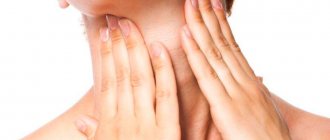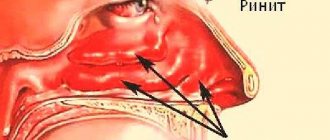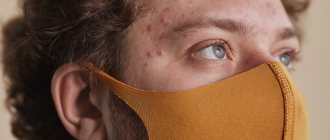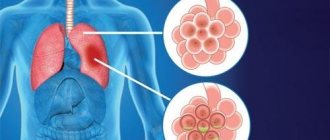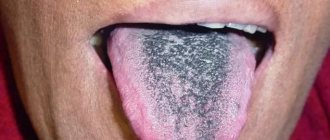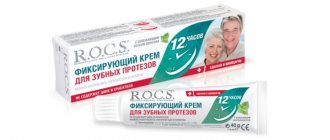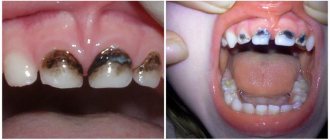Trismus is a spasm of the chewing muscles or their involuntary contraction. As a result of trismus, the jaws become closed and it is extremely difficult to open them. Usually the problem lies in impaired muscle function and tone, and this, in turn, can be associated with various diseases. It is very difficult to get rid of spasms of the jaw muscles on your own, so it is important to seek help from a dentist - he will assess the condition and refer you to specialists if necessary.
The mechanism of trismus occurrence
The chewing muscles set our jaw apparatus in motion. A sudden muscle contraction, accompanied by a strong closure of the jaws, limitation of the movement of the lower jaw, temporary loss of the ability to speak and eat, is called trismus. Strong clenching of teeth often causes breathing problems.
Excessive muscle tension leads to hardening. The disease can become a factor in a significant decrease in the quality of life and deterioration of the psycho-emotional background. A person’s appearance changes, the digestive tract organs suffer, so it is important to see a doctor as soon as possible. Without timely help, your general health may deteriorate, and it is also necessary to find out the causes of spasms.
Ask a Question
How do they show themselves?
Muscle tension on the face is not always immediately noticeable.
Rather, they are palpable as areas of stubbornly tense muscles. They can be noticeable in dynamics, for example, during a conversation, some of a person’s muscles are not included in a single facial picture, because they are “busy with other work” - maintaining the tension.
Most often, people do not feel tight muscles and cannot relax them with conscious effort.
The more muscle tension, the poorer and more monotonous your emotional life.
Muscle clamps are not decoration, but require respectful attention. Most likely, the experience captured in them is very significant for a person. The body records undeveloped topics for “further study and retake.”
Intuitively, people feel the need to relax their muscles, touch their face with very characteristic and precise movements, trying to release stuck energy, relieve tension - literally remove it with their hands.
Types of trismus and diagnostic methods
There are two main types of spasm of the masticatory muscles:
- Unilateral. Most often it is associated with an inflammatory process or injury to the mandibular joint and adjacent tissues. The result of unilateral pathology is a displacement of the lower jaw to the side when opening the mouth, as well as facial asymmetry.
- Bilateral. The cause of the disease is neuralgia and common infectious diseases. With this type of trismus, the jaws close together with a slight movement of the lower jaw back. There is an inability to open the mouth, difficulty speaking and eating.
To diagnose trismus, the doctor will find out information about previous diseases, operations, injuries, collect anamnesis, and listen to complaints. External examination is supplemented with radiography and other methods of clarifying the diagnosis.
What do chronic tension lead to?
- Tense muscles make it difficult to nourish the skin, since facial muscles are woven into the skin, and their chronic compression worsens the trophism of certain areas of the face.
- Facial expressions suffer (it is impossible to express feelings).
- Emotional life suffers (it is impossible to fully rest and experience emotions).
- An area of skin, experiencing constant compression, becomes flabby and covered with fine or deeper wrinkles. For example, this is how “crow’s feet” appear in the corners of the eyes.
- The muscles opposite the clamp, or antagonists, being in a relaxed state, gradually atrophy and cannot support soft tissues, deformations occur, such as drooping of the upper eyelid, sagging cheeks.
The nature of dominant emotions and, accordingly, chronic tensions shape the face of an older person. What a person feels most often is “recorded” on the face as wrinkles and deformations.
Causes of trismus
The problem of spasm of the lower jaw can be associated not only with damage to nerve endings and reflex contraction, but also with other factors:
- infectious and inflammatory diseases of the oral cavity;
- previous injuries;
- unsuccessfully performed anesthesia of the teeth of the lower jaw;
- arthrosis of the mandibular joints;
- pathologies of ENT organs;
- irritation, inflammation of the trigeminal nerve;
- purulent processes, etc.
In addition, trismus can be a consequence of pseudobulbar palsy, meningitis, epilepsy, calcium deficiency, etc. Symptoms may first appear after injury, temperature changes, or sudden hypothermia. Sometimes the jaw cramps after opening the mouth wide, for example, after removing a wisdom tooth.
Symptoms and manifestations
Trismus of the masticatory muscles is accompanied by limited mobility of the joints responsible for closing the jaw. The inability to unclench them can be of a different nature - from partial to complete immobilization. The mouth may open 40, 20, or 10 mm or less, depending on the severity of the condition. Spasmodic contractions can worsen your overall health, cause headaches and other consequences.
One of the manifestations is inflammatory processes due to jamming of the jaws, in this case there is an alternating reduction of the sides of the face. Less commonly, trismus is associated with tumor processes, accompanied by a noticeable increase in formation and increased symptoms. With viral infections, elevated body temperature is often observed.
General symptoms
The main symptoms of hyperkinesis include motor acts performed by patients against their will, the so-called violent ones. Patients themselves describe them as the result of an irresistible desire that they cannot resist.
The list of symptoms representing hyperkinesis includes:
- frequent blinking and squinting of the eyes (tics);
- convulsive tilting or turning of the head;
- tremor of various parts of the body, most often the limbs;
- myoclonus – sudden muscle twitching of the arms or neck;
- chorea - arrhythmic movements of facial expressions, involuntary sounds arising from rapid contractions of the muscles of the larynx;
- ballism - sudden rotation of the hip or shoulder;
- Blapharospasm is a pathological closure of the eyelids, as one of the signs of various diseases.
Forms of hyperkinesis can vary from intermittently frequent to constant. Some patients manage to control certain forms of hyperkinesis (for example, tics) by force of will, but after a while the attack of violent movements manifests itself again with even greater force.
Treatment methods
Patients with hypertension should receive help as soon as possible, since trismus can accompany a hypertensive crisis. It is also important to call an ambulance if you suspect rabies and tetanus. In the absence of severe concomitant pathologies, you can consult a dentist.
Knowledge of how to relax the jaw muscles on your own is necessary for self-help directly during spasm - but in the future, examination and consultation with a specialist is necessary. A warm compress can help with spastic jaw closure. Its use is not recommended if there are foci of inflammation in the oral cavity, for example, with pulpitis, periodontitis, periostitis, or suspected abscess. A light massage of the muscles can also help to relax, but remember that the movements should be light, and in no case should you put any force on the muscles.
The approach to the treatment of trismus includes a detailed analysis of the condition and a search for the causes of the disease. To eliminate the causes, it may be necessary to remove the inflamed tooth or surgical treatment of purulent inflammation. In case of a fracture, the doctor will immobilize the jaw.
Physiotherapeutic methods are widely used as a supplement. Laser, ultrasound therapy, electrophoresis with the use of painkillers can be used.
Antibacterial therapy is used for the inflammatory nature of spasms, for example, inflammation of the trigeminal nerve.
Treatment of spasm of the masticatory muscles often includes the use of sedative medications if the pathology was caused by diseases of a neurological nature. However, a neurologist prescribes such drugs.
Also, if muscle tone disorders are suspected of being infectious, vaccination is mandatory. Infection with the rabies virus requires immediate attention.
The face is a mirror of emotions
You are greeted by your clothes, seen off by your face... - this is how you can paraphrase a well-known proverb.
A quick glance at the clothes when meeting someone - and it becomes clear that this is a wealthy person, and when you look at his face - that he has much more worries than money.
A business card with gold embossing only indicates social status.
Subscribe to our INSTAGRAM account!
And the face is a screen of the state of the body. Physical ailments, level of self-esteem, quality of life are “written” on the face in the language of facial expressions, skin condition, and the shine of the eyes.
Emotions are energy
The face, more than other areas of the body, is involved in communication and expression of emotions. In the traditions of Chinese medicine and philosophy, it is customary to distinguish 5 basic emotional states .
These are anger, fear, joy, sadness and reflection.
Traditional medicine associates emotional manifestations with the activity of certain channels and organs.
Any violation of the expression of emotion - hypertrophied, restrained, inadequate to the external situation - helps in making a diagnosis and choosing treatment tactics.
For a doctor of Eastern schools, there are no isolated diagnoses of “neurosis” or “biliary dyskinesia,” but there is a complex disorder that covers the entire human being.
And expressing emotions is one of the ways energy circulates in the body.
The manifestation of emotions affects the state of the human muscular system and, first of all, facial expressions.
Fluid changes in facial expressions help you experience the emotion in full, realize and transform it, and convey your state to others.
In many cases, facial expressions are much more informative than words.
You can move to a different emotional mood without pretending only after changing your facial expression.
Relax old tensions and move on to new ones.
Residual tensions prevent you from entering new emotional states.
From the outside it looks like fatigue, gloominess, and unpreparedness to communicate.
A balanced facial muscle pattern is generally perceived as beautiful and appropriate.
The best publications in the Econet.ru Telegram channel. Subscribe!
Full participation of muscles in communication and emotional life and, importantly, their timely relaxation significantly affect the overall appearance of the face and skin condition.
Plastic, mobile muscles easily form the desired facial expression and just as easily relax for rest.
In this case, the face and neck maintain good tone, the intradermal fibers of the facial muscles constantly provide a light “massage” and maintain skin elasticity.
Measures to prevent trismus
To prevent trismus, it is important to sanitize the oral cavity in a timely manner: remove teeth that cannot be restored, treat caries and inflammatory gum diseases. If prosthetics are necessary, you should contact only qualified specialists, and orthodontic structures should be replaced in a timely manner. The presence of neurological diseases requires constant monitoring by a neurologist.
If you have trismus, you can get advice from dentists at STOMA clinics. If pathology of the temporomandibular joints is detected, experienced specialists will prescribe an additional examination and give recommendations aimed at eliminating the causes of the disease. You can make an appointment for an examination by calling the specified phone number or using a special form on the website.
What can you do at home if:
Head muscle spasms
To relieve spasm and pain, you can take aspirin, a painkiller tablet like Ibuprofen, or a painkiller in powder form (for example, Nimesil). Give yourself peace of mind. You can try pressing trigger points and stretching your earlobes.
Jaw muscle spasm
If trismus manifests itself, before the doctor arrives, you can self-massage the masticatory muscles, accelerating the blood in them, alternately pressing on the muscles constrained by spasm. It is also possible to use compresses (alternate warm and cold compresses, apply them to the lower third of the face).
Cervical muscle spasms
Make gentle rotational movements with your head, lower and lift it (without throwing it back too much), turn it right and left. You can try stretching your neck muscles with your hands. Warm compresses and rubbing are effective.
*Attention! The information is for informational purposes only and does not constitute medical advice.
Reviews
Tatiana
I am happy to be among your guests at the clinic, I enjoy our communication, I am grateful for your super professionalism, for giving beauty and a sense of confidence in your professional actions, protection from “age-related changes”
